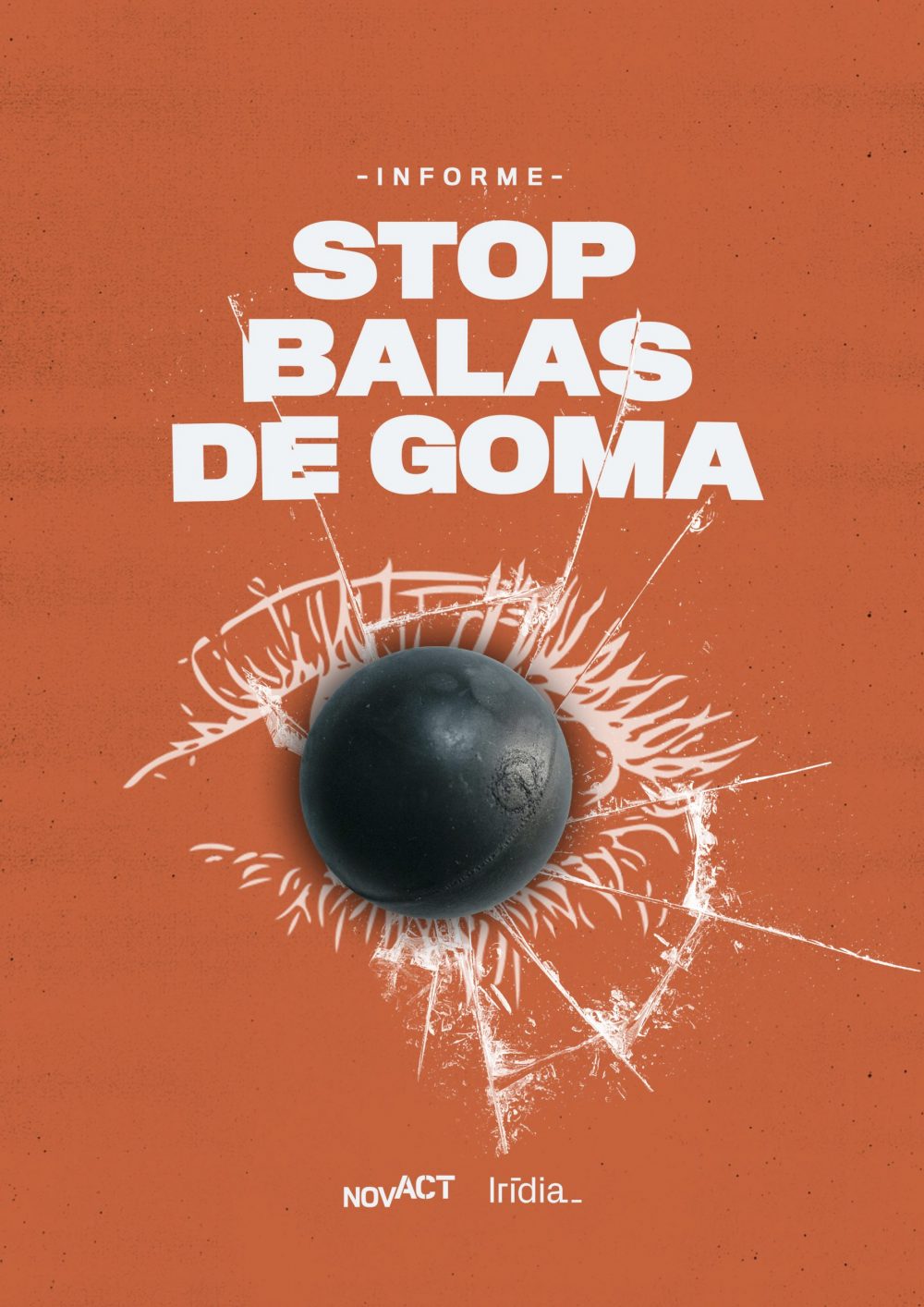Campaign
STOP RUBBER BULLETS
Goals
This report has been drawn up to raise people’s awareness and highlight the severe consequences of the use of rubber bullets, between 2000 and 2020, in Spain. Despite the publication of several reports and international studies, exposing the situation, a detailed analysis of the State Security Force’s continuing use of these dangerous projectiles and the right of the Police Force to apply these measures is of vital importance.
Since the beginning of the Democratic Transition (1976) until the last known case with severe consequences in 2017, at least 23 people have died, and several dozen have been wounded, most of them seriously injured, as a result of the use of rubber bullets. In the last 20 years alone, the present investigation has counted 22 incidents related to rubber bullets in the context of protest marches and football celebrations. As well as these figures, we should not forget the 14 people who were killed and the 4 who were severely injured when they attempted to swim to the shores of Tarajal beach (Ceuta, southern Spain), on 6 February 2014. The Civil Guards fired rubber bullets at the people in the water in order to prevent their entry into Spain.

+ REPORT [SPANISH]
+ EXECUTIVE SUMMARY [ENGLISH]
+ Join the campaign to stop the use of rubber bullets
From 2000 until the last known case of serious injury in 2017, rubber bullets have caused the death of at least 1 person through direct impact and 11 people have lost their vision in one eye. In addition, 14 people drowned as they tried to swim to the shores of Tarajal beach (Ceuta), in 2014, while the Civil Guard fired rubber bullets at them.
UN regulations prohibit shooting rubber bullets in the head, neck, chest and groin. Despite this, more than half of the victims who were documented in this Spanish investigation, 18 people (69%) were hit in the head and 5 in the upper body. In these cases, the ocular area was the most affected, in 13 out of 18 cases. Among them, 7 were left with permanent damage to the eyeball and 4 with vision loss. In addition to physical injuries, psychological effects and social repercussions must be added.
In none of the 40 cases identified between 2000 and 2020 has the perpetrator of the shooting been brought to trial. Only in one case, that of the death of Iñigo Cabacas, has an Ertzaintza commander been convicted of homicide due to gross negligence, for not stopping the police charge. In the case of Roger Español, who lost an eye after being hit by a rubber bullet, in spite of the fact that the policeman responsible for the shot was identified at the time of the shooting, none of the commanders, nor the police officers present, nor the National Police Force have identified the perpetrator. This is a recurring theme in cases of police violence. On 13 occasions, The European Court of Human Rights has taken the Spanish State to task for not investigating complaints of police malpractice.
Currently, the officers of the National Police Force are authorised to use rubber bullets throughout the Spanish State. The regulations that control the means used by the FCSE (“Fuerzas y Cuerpos de Seguridad del Estado”, Spain’s national security forces) are not open to the public. Therefore it is impossible to determine if these regulations comply with international standards or not. On the other hand, the autonomous police forces in Navarra, Euskadi and Catalonia are prohibited from using rubber bullets.
This report aims to contribute to the public debate, by stating that rubber bullets are unpredictable weapons with great potential for causing harm. Rubber bullets are fired at 144 joules, so they are potentially lethal and can cause serious permanent injury. Therefore, they do not comply with international standards for the use of force. To reach our goal, we need to have as many supporters as possible for our manifesto of the #StopBalasGoma campaign.
We recommend that the Government of the Spanish State prohibits the use of rubber bullets and we ask the Public Prosecutor’s Office to create a Special Prosecutor’s Office on Institutional Violence to supervise all the processes that are related to it, including cases of rubber bullets or other kinetic impact projectiles (KIP).
